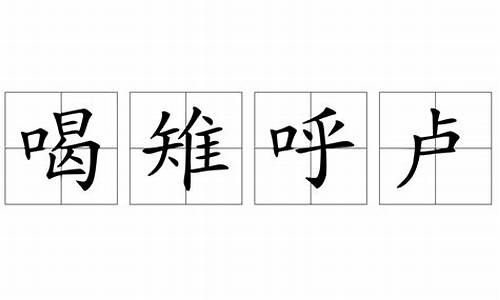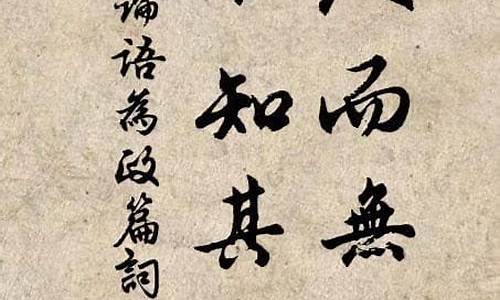您现在的位置是: 首页 > 成语分类 成语分类
stretchout-stretchout造句
tamoadmin 2024-10-16 人已围观
简介expand 英[iks?p?nd] 美[?k?sp?nd] 过去式:expanded 过去分词:expanded 现在分词:expanding vt. & vi. 1.使…变大, 扩大, 扩张, 增强(尺码、数量或重要性) 2.伸展, 伸开, 张开, 展开 vt. 1.扩展,发展(业务) 2.细谈;详述;详细阐明 3.扩展(题目、论题、思想等);详细展开,详谈,详述,更充分地阐述;增述;增

expand
英[iks?p?nd] 美[?k?sp?nd] 过去式:expanded 过去分词:expanded 现在分词:expanding
vt. & vi.
1.使…变大, 扩大, 扩张, 增强(尺码、数量或重要性)
2.伸展, 伸开, 张开, 展开
vt.
1.扩展,发展(业务)
2.细谈;详述;详细阐明
3.扩展(题目、论题、思想等);详细展开,详谈,详述,更充分地阐述;增述;增订(词典等)
4.把(缩略式、方程式等)全部写出
vi.
1.进一步阐述,详述,详谈,充分叙述 (on, upon)
2.变得和蔼可亲;变得愿意交谈;感到心情舒畅,感到心旷神怡,热情洋溢 及物动词 vt. & 不及物动词 vi.
1.使…变大, 扩大, 扩张, 增强(尺码、数量或重要性)
The ranks of the teachers are constantly expanding.
教师队伍日益扩大了。
The merchant wants to expand his business.
那个商人想扩大他的经营。
2.伸展, 伸开, 张开, 展开
The petals of many flowers expand in the sunshine.
许多花瓣在阳光下绽放。
The eagle expanded its wings.
雄鹰展翅。
及物动词 vt.
1.扩展,发展(业务)
2.细谈;详述;详细阐明
3.扩展(题目、论题、思想等);详细展开,详谈,详述,更充分地阐述;增述;增订(词典等)
4.把(缩略式、方程式等)全部写出
不及物动词 vi.
1.进一步阐述,详述,详谈,充分叙述 (on, upon)
2.变得和蔼可亲;变得愿意交谈;感到心情舒畅,感到心旷神怡,热情洋溢
stretch
英[stret?] 美[str?t?] 过去式:stretched 过去分词:stretched 现在分词:stretching 复数:stretches
vt. & vi.
1.伸展; 拉紧
2.延伸
n.
1.伸展, 延伸, 延续
2.一段时间, 一段路程, 一段水域
3.一片;一泓;一段
4.期
5.弹性;伸缩性
6.(终点)直道
7.拉伸(或伸展、紧张、拉紧等)的状态
8.过多的使用,滥用;歪曲
9.伸展的长度(或宽度)
10.方向;路线
11.(为消除疲劳等的)散步
vt.
1.拉长;拽宽;撑大;撑松
2. 有弹性(或弹力)
3.拉紧;拉直;绷紧
4.伸出,伸长(胳膊、腿)
5. 延续
6.足够买(或支付)
7.耗尽,竭尽(财力、物力等)
8.使竭尽所能;使全力以赴;使发挥出全部本领
9.滥用;随意歪曲
10.损伤,扭伤(脚踝等)
11.使(飞机、电厂等)改型
12.把(人)的四肢绑在拉肢刑架上(施刑)
adj.
1.弹性的,可拉伸的
2.(飞机、汽车等)改型的,已改进的
vi.
1.伸展四肢地躺着(常与 out 连用)
2.伸手;伸手去拿
3.尽力,全力以赴 及物动词 vt. & 不及物动词 vi.
1.伸展; 拉紧
Rubber stretches easily.
橡胶的延展性很好。
He rose and stretched himself.
他站起身, 伸了伸懒腰。
2.延伸
The road stretches uphill at a steep slope.
这条路以陡峭的坡度向山上延伸。
The bird stretched its wings.
鸟展开了翅膀。
名词 n.
1.伸展, 延伸, 延续
He had a good stretch on the bed.
他在床上痛快地伸了个懒腰。
2.一段时间, 一段路程, 一段水域
I see nothing but a small stretch of road immediately ahead.
除了近在眼前的一小段路之外什么也看不见。
3.一片;一泓;一段
4.期
5.弹性;伸缩性
6.(终点)直道
7.拉伸(或伸展、紧张、拉紧等)的状态
8.过多的使用,滥用;歪曲
9.伸展的长度(或宽度)
10.方向;路线
11.(为消除疲劳等的)散步
及物动词 vt.
1.拉长;拽宽;撑大;撑松
2. 有弹性(或弹力)
3.拉紧;拉直;绷紧
4.伸出,伸长(胳膊、腿)
5. 延续
6.足够买(或支付)
7.耗尽,竭尽(财力、物力等)
8.使竭尽所能;使全力以赴;使发挥出全部本领
9.滥用;随意歪曲
10.损伤,扭伤(脚踝等)
He stretched his left foot when he jumped for the second time.
他第二次试跳时扭伤了左脚。
11.使(飞机、电厂等)改型
The common weapons should be stretched every ten years.
常规武器应该十年一换代。
12.把(人)的四肢绑在拉肢刑架上(施刑)
形容词 adj.
1.弹性的,可拉伸的
2.(飞机、汽车等)改型的,已改进的
不及物动词 vi.
1.伸展四肢地躺着(常与 out 连用)
to stretch out on a couch
舒展身体躺在长沙发上
2.伸手;伸手去拿
He stretched into his pocket for some money.
他伸手到口袋,掏出了一些钱。
3.尽力,全力以赴
extend
英[iks?tend] 美[?k?st?nd] 过去式:extended 过去分词:extended 现在分词:extending
vt.
1.延长; 扩展; 达到(某一点)
2.尽可能地伸开(身体某部)
3.给予, 提供, 发出
4.使伸长;扩大;扩展
5.扩大…的范围(或影响)
6.适用于;包括
7.涉及(范围);延伸(距离);延续(时间)
8.伸展,舒展,展开(尤指手臂或腿)
9.使竭尽全力
10.拉开,拉出,拉长
11.促进,推动;发展;增进
12.发出(邀请、欢迎等)
vi.
1.(空间、时间等)延伸; 延续
2.伸,伸展,展现,伸直;扩展;扩充;连绵
3.(在长度、面积、范围等方面)增加,增大,扩大;变长
4.伸出,突出
5.持续存在;存在;实际上有
6.军事疏开;散开 及物动词 vt.
1.延长; 扩展; 达到(某一点)
France has greatly extended its influence in world affairs.
在世界事务中, 法国的影响已大大地扩大了。
2.尽可能地伸开(身体某部)
He extended his hand in greeting.
他伸出手来表示欢迎。
3.给予, 提供, 发出
The bank will extend you credit.
银行会给你提供信用贷款。
It was kind of you to extend an invitation to us.
感谢你对我们的邀请。
4.使伸长;扩大;扩展
5.扩大…的范围(或影响)
6.适用于;包括
7.涉及(范围);延伸(距离);延续(时间)
8.伸展,舒展,展开(尤指手臂或腿)
9.使竭尽全力
10.拉开,拉出,拉长
11.促进,推动;发展;增进
12.发出(邀请、欢迎等)
不及物动词 vi.
1.(空间、时间等)延伸; 延续
My garden extends as far as the river.
我的花园一直伸展到河边。
2.伸,伸展,展现,伸直;扩展;扩充;连绵
The plateau extends for many miles.
高原连绵许多英里。
3.(在长度、面积、范围等方面)增加,增大,扩大;变长
The country's trade extended from China to Europe.
该国的贸易从中国扩大到了欧洲。
4.伸出,突出
5.持续存在;存在;实际上有
6.军事疏开;散开
enlarge 英[in?lɑ:d?] 美[?n?lɑrd?] 过去式:enlarged 过去分词:enlarged 现在分词:enlarging
vt. & vi.
1.扩大, 扩展, 扩充
2.放大 及物动词 vt. & 不及物动词 vi.
1.扩大, 扩展, 扩充
The balloon enlarged as we pumped air into it.
那个气球充气后就变大了。
2.放大
This photograph won't probably enlarge well.
这张照片放大出来很可能效果不好。
This photograph is too small, please enlarge it for me.
这张照片太小, 请把它给我放大。
enlarge, amplify, expand, increase, magnify, multiply, augment
这些动词均有“增加,增大”或
enlarge: 主要指面积或体积等的扩大。
amplify: 在科技中常指声音的扩大或电磁波的增强。也指补充了细节、详述或扩大内容等。此词系正式用语。
expand: 指范围、程度、体积和尺寸等方面的扩大或增加。
increase: 指数量、强度和大小等方面的扩大或增加。
magnify: 可指用光学仪器使物体看上去显得变大;也指事实上把某物增大,有时用于夸张意味。
multiply: 通常指自然繁殖而产生的增长,有时也指同类事物数量的成倍增加。
augment: 较正式用词,一般指在原有的基础上增加含量而扩大。
一段的结构一段的结构是什么
put out的out不是动词,而是副词。put out作为一个词组有下列含义:
put out
1.extinguish(a
fire)扑灭(火);熄灭
*The fire brigade soon
put out the fire.消防队员很快就把火扑灭了。
*She put out the light
and closed the door.她关掉灯,然后带上了门。
2.force to leave逐出;赶走
*If you keep talking in
class,I'll have to put you out.如果你上课再讲话,我就把你赶出去。
*He put out the cat.他把猫赶了出去。
3.make angry使生气
*He never compromises on
matters of principle and doesn't care who he puts out.在原则问题上他从不妥协,不怕得罪人。
*She was so put out by
the man's rudeness that she didn't know what to say.那个男子的无礼使她非常生气,以致于不知该说什么是好。
4.stretch out伸出
*It is rude to put out
your tongue at people.对别人伸舌头是不礼貌的。
*She put out her hand in
welcome.她伸出手来欢迎。
5.set sail出航
*The ship put out to sea
at dawn.这条船在黎明时启航了。
6.publish;broadcast出版;广播;发表
*For years he had put
out a weekly newspaper.多年来他一直在出版一种周报。
*The is about
to put out a statement on its wages policy.政府将对工资政策发表声明。
7.exert(strength,etc.)使出力量
*Let's put out all our
strength to do it.让我们全力以赴去做。
*Never had our
supporters put out so much effort.支持我们的人从来没有出过这么大的力。
8.produce;generate;provide生产;产生;供应
*The company puts out
900 cars a week.这家公司一星期生产900辆汽车。
*The enging of a fighter
puts out more than one thousand horsepower.一架战斗机的发动机输出功率高达1千多匹马力。
*This eatinghouse puts
out meals at moderate prices.这家餐馆供应廉价饭菜。
9.sprout new shoots,leaves,etc.,esp.of a tree or plant(植物)长出(芽、叶)
*The trees start putting
out their fresh green shoots in the spring.春天,树木开始长出鲜嫩的绿芽。
10.cause sb.to
become unconscious使昏迷
*He put out his opponent
in the seventh round.在第7回合中他把对手击昏倒了。
*He was put out by
acupunctural anaesthesia.针刺麻醉使他失去了知觉。
11.dislocate a part of the body使脱臼
*She fell down and put
her shoulder out.她摔了一跤,把肩膀跌脱了臼。
*12.cause figures,results,calculations,etc.to be wrong or inaccurate使误差
*The rise in
transportation costs has really put our estimate out.运输费的上涨使我们的预算产生了误差。
*The final totals can
have been put out by as much as five per cent.最后的总数可能误差达百分之五。
13.inconvenience sb.麻烦(某人);使某人不便
*You're not putting us
out at all!On the contrary,we're glad to see you.你一点也没打搅我们!相反,见到你我们真是很高兴。
*It won't put us out a
bit if we drive you home.我们开车送你回去,一点都不麻烦。
14.lend money to sb.in
order to get interest on it放款;投资
*The banks have started
putting out money to people wanting to buy their own houses.银行已开始借款给那些想买房子的人。
伸直的网络解释伸直的网络解释是什么
一段的结构是:一(独体结构)段(左右结构)。
一段的结构是:一(独体结构)段(左右结构)。拼音是:yīduàn。注音是:一ㄉㄨㄢ_。
一段的具体解释是什么呢,我们通过以下几个方面为您介绍:
一、词语解释点此查看计划详细内容
一段yīduàn。(1)一部分。
二、国语词典
一节。如:「一段文章」。
三、网络解释
一段一段,读音为yīduàn,汉语词语,意思是指一部分。
关于一段的诗词
《巫山一段云·一点光明大》《可观用·一段池塘萱草奇》《金鼎一溪云本名巫山一段云赠孙志道王居》
关于一段的诗句
一段段时刻在悠然前进之中虽像是姐妹四月的黄昏里流曳着一组组绿色的旋律在峡谷低回在天空游移要是灵魂里溢满了回响又何必苦苦寻觅要歌唱你就歌唱吧但请轻轻轻轻温柔地四月的黄昏仿佛一段失而复得的记忆也许有一个约会至今尚未如期也许有一次热恋而不能相许要哭泣你就哭泣吧让泪水流啊流啊默默地童话诗人——但一段段自为支节
关于一段的单词
flinglengthepisodestretchoutofwhile
关于一段的成语
一龙一蛇一薰一莸一张一弛一枝一节一举一动一针一线一觞一咏一心一意
关于一段的词语
移丘换段不择手段一刀两段碎尸万段
关于一段的造句
1、退休后,我有一段日子无所事事,每天尽盯着电视看。
2、这一段时间,她情绪不定,变化无常,大家都为她担心。
3、在树林间突然传来了了一段娓娓动听的歌声。
4、这是一段让人刻骨铭心的历史。
5、王爷爷听到孙女在吊嗓,一时见猎心喜,也陪唱了一段。
点此查看更多关于一段的详细信息
假如给我三天光明中英文版的精彩段落
伸直的网络解释是:伸直1.把形状由弯曲改变成平直。如:他在长沙发椅上伸直身子躺着。2.伸开。如:交替地弯曲和伸直他的胳臂。
伸直的网络解释是:伸直1.把形状由弯曲改变成平直。如:他在长沙发椅上伸直身子躺着。2.伸开。如:交替地弯曲和伸直他的胳臂。拼音是:shēnzhí。结构是:伸(左右结构)直(上下结构)。注音是:ㄕㄣㄓ_。
伸直的具体解释是什么呢,我们通过以下几个方面为您介绍:
一、词语解释点此查看计划详细内容
伸直shēnzhí。(1)把形状由弯曲改变成平直。(2)伸开。
二、国语词典
伸展使其平直。如:「他将两手伸直,一跳一跳的假装成僵尸。」词语翻译德语aufstehen(V)_
关于伸直的近义词
挺直
关于伸直的反义词
蜷缩弯曲
关于伸直的诗句
我在绿色的餐桌下伸直了双腿伸直腰伸直了又垂下去
关于伸直的单词
stickupstiffarmunbendstretchout
关于伸直的成语
引伸触类昂首伸眉屈蠖求伸尺蠖求伸能屈能伸
关于伸直的词语
屈蠖求伸有屈无伸引伸触类龙伸蠖屈瞠目伸舌伸冤理枉尺蠖求伸伸头探脑昂首伸眉难伸之隐
关于伸直的造句
1、言语之间,右手食、中指蓦地伸直,余者向内蜷曲,以指代剑,由上及下疾划,虽无招无式,却极具招式的神髓,同时大喝一声“断!”。
2、它没有翼膜,但可以通过伸直身体来扩大体表面积跳出去在树顶间滑翔。
3、所谓伸懒腰,就是指伸直颈部、举抬双臂、呼吸扩胸、伸展腰部、活动关节、松散脊柱的自我锻炼。
4、昨天上课之前的热身运动使我今天的腿都不能伸直。
5、乌黑油亮的头发,红红的小脸蛋,两只小眼睛像小猫那样睁着,伸直了他胖胖的手臂,手臂上还有五个小窝窝。
点此查看更多关于伸直的详细信息
As far as 与so far as 有什么区别
第一天,我要看看人,他们的善良、淳普与友谊使我的生活值得一过。首先,我希望长久地凝视我亲爱的老师,安妮·莎莉文·麦西太太的面庞。当我还是个孩子的时候,她就来到了我面前,为我打开了外面的世界。我将不仅要看到她面庞的轮廓,以便我能够将它珍藏在我的记忆中,而且还要研究她的容貌,发现她出自同情心的温柔和耐心的生动迹象,她正是以此来完成教育我的艰巨任务的。我希望从她的眼睛里看到能使她在困难面前站得稳的坚强性格,并且看到她那经常向我流露的、对于全人类的同情。 我不知道什么是透过“灵魂之窗”,即从眼睛看到朋友的内心。我只能用手指尖来“看”一个脸的轮廓。我能够发觉欢笑、悲哀和其他许多明显的情感。我是从感觉朋友的脸来认识他们的。但是,我不能靠触摸来真正描绘他们的个性。
Most of us, however, take life for granted. We know that one day we must die, but usually we picture that day as far in the future. When we are in buoyant health, death is all but unimaginable. We seldom think of it. The days stretch out in an endless vista. So we go about our petty tasks, hardly aware of our listless attitude toward life.
stumble的短语
1.用于指距离,表示“直到……为止”之意时,as far as既可用于肯定句,也可用于否定句,但so far as只能用于否定句中。例如:We went as far as Lion Rock Tunnel. 我们一直走到狮子山隧道公路那儿。
They did not go as far as the others. 他们没有像其他的人走得那么远。
(此句的as far as可以改作so far as)
(二)在表示“直到……程度”之意的借喻说法中,as far as和so far as都可使用,但前者不及后者用得普遍。例:she went so far as (or as far as) to call him a coward. 她甚至骂他是儒夫。
(三)在表示“就……而论”之意时,as far as和so far as可互换使用。例: As (or So) far as I koow,she will be away from Macao for two months.
据我所知,她将要离开澳门两个月。
As (or So) far as my knowledge goes,there is no such word in English.
据我所知,英语里没有这样一个字。
(四)在表示“只要”、“尽……所能”之意时,应用as far as,不用so far as。例: I'll do my utmost to help you as far as I can.
只要可能,我一定竭尽全力来帮你。 Eric Partridge在他编著的Usage and Abusage一书中写道(第44页),在用作比喻意义的叙述句里,so far as比as far as用得普遍,他举了这样一个例子:so far as I can see,your idea is admirable.
2.一、在表示during the whole time that(长达……之久)或while(只要)的含义时,往往用as long as。如:
1. they all continued their regard for me as long as they lived. 他们毕生都在关心着我.
2. For almost as long as Juanita could remember, adding, subtracting, multiplying, and dividing seemed as easy as breathing, and as natural. 在胡安妮塔的记忆中,加减乘除对自己来说早就是如同呼吸一样简单而自然了.
3. As long as there is life there is hope. 留得生命在,不怕没希望.
二、在表示on condition that, provided that或if(只要,如果)的含义时,用as long as或so long as的情况均很常见。如:
1. You can go out, as / so long as you promise to be back before 11 o'clock. 你可以出去,只要你答应在11点以前回来.
2. I'll accept any job as / so long as I don't have to get up early. 只要不必早起,任何工作我都可以接受.
3. So / As long as electric current flows through a wire, there is a potential difference. 只要有电流通过,导线就有电位差.
4. these stories reinforced the idea that all individuals, no matter how poor, were capable of becoming wealthy so / as long as they were hardworking. 这些故事强化了一种思想,那就是,所有人,不管有多穷,只要勤劳,都能变富有.
三、在表示since, considering that(既然,因为)的含义时,多用as long as。如:
1. As long as we've driven this far, we might as well go on. 我们既然已经驶得这么远了,就不妨继续前进.
2. As long as you are here, go on. 你既然已经来到这里了,就干吧.
3. As long as you are going, I'll go too. 既然你要去,那么我也去.
四、有时,as / so long as与if only同义,由它引导的状语分句可不依附主句而单独使用,表示说话人的希望、愿望或遗憾心情等。如:
—It's said it's going to turn colder and freeze later on. 听说过些时候天气要变冷,有冰冻.
—As long as it doesn't spoil the weekend. (=I hope that it doesn't spoil the weekend.) 只要不把周末弄糟了就没事.
五、在用as / so long as连接的从句中,当其谓语为be,而主语和主句的主语相同时,则从句的主语和be可以省略。如:
I'm sure we are safe as long as(we are) in his care. 我深信只要在他的保护下,我们就会平安无事.
reach的详细意思reach的详细意思是什么
例句:Thejacuzziwastoosmalltostretchoutin.这个极可意浴缸太小了,躺不下。Itsadangerousstretchofroad.那段路很不安全。I stumble o 扩展资料 例句:Thejacuzziwastoosmalltostretchoutin.这个极可意浴缸太小了,躺不下。
Itsadangerousstretchofroad.那段路很不安全。
I stumble on this life advices in my folder that I found on net before.
在我的文件夹里,我无意中发现了这些人生小忠告,那是我以前在网上找到的`。
Number of times winners will take out crumpled, handwritten notes and stumbleover their acceptance speeches: 5.
得奖人拿出褶皱的,手写的小纸条,颤微微地念出获奖感言的次数:5次。
告诉我假如给我三天光明的英文版全文吧...拜托
reach的详尽释义是:v.(动词)达到到达,到,抵,抵达伸手及到,伸手去拿,伸出(手)够到延伸到,扩展到...,延及...,遍及传到射及击中,打中努力争取和...通讯,和...得到联络伸展身体伸长,蔓延竭力想得到,竭力想达到计达(与to,into连用)。
reach的详尽释义是:v.(动词)达到到达,到,抵,抵达伸手及到,伸手去拿,伸出(手)够到延伸到,扩展到...,延及...,遍及传到射及击中,打中努力争取和...通讯,和...得到联络伸展身体伸长,蔓延竭力想得到,竭力想达到计达(与to,into连用)。reach的词语用法是v.(动词)reach的基本意思是指人“到达”某地,引申可表示某人与其他人“达成”了一致的意见、协议等;用于指物可表示某条道路、路线等“延伸”至某一地方,引申可表示某消息、影响“传到”某处。reach近义词arriveat。
一、详尽释义点此查看reach的详细内容
v.(动词)达到到达,到,抵,抵达伸手及到,伸手去拿,伸出(手)够到延伸到,扩展到...,延及...,遍及传到射及击中,打中努力争取和...通讯,和...得到联络伸展身体伸长,蔓延竭力想得到,竭力想达到计达(与to,into连用)n.(名词)区域,领域,范围可及之范围手脚所能伸的限度地带,大片地区射程所能及的限度二、英英释义
Noun:thelimitswithinwhichsomethingcanbeeffective;"rangeofmotion"
"hewasbeyondthereachoftheirfire"
anareainwhichsomethingactsoroperatesorhaspowerorcontrol:"therangeofasupersonicjet"
"apianohasagreaterrangethanthehumanvoice"
"theambitofmunicipallegislation"
"withinthecompassofthisarticle"
"withinthescopeofaninvestigation"
"outsidethereachofthelaw"
"inthepoliticalorbitofaworldpower"
theactofphysicallyreachingorthrustingout
thelimitofcapability;"withinthecompassofeducation"
Verb:reachadestination,eitherrealorabstract;"WehitDetroitbynoon"
"Thewaterreachedthedoorstep"
"Webarelymadeittothefinishline"
"IhavetohittheMACmachinebeforetheweekendstarts"
reachapointintime,oracertainstateorlevel;"Thethermometerhit100degrees"
"Thiscarcanreachaspeedof140milesperhour"
moveforwardorupwardinordertotouch;alsoinametaphoricalsense;"Governmentreachesouttothepeople"
beinorestablishcommunicationwith;"Ouradvertisementsreachmillions"
"HenevercontactedhischildrenafterheemigratedtoAustralia"
togainwitheffort;"sheachievedhergoaldespitesetbacks"
toextendasfaras;"Thesunlightreachedthewall"
"Canhereach?"
"Thechairmustnottouchthewall"
reachagoal,e.g.,"makethefirstteam"
"Wemadeit!"
"Shemaynotmakethegrade"
placeintothehandsorcustodyof;"handmethespoon,please"
"Turnthefilesovertome,please"
"Heturnedovertheprisonertohislawyers"
toexertmucheffortorenergy;"strainingourearstohear"
三、词典解释
1.到达;抵达
Whensomeoneorsomethingreachesaplace,theyarrivethere.
e.g.Hedidnotstopuntilhereachedthedoor...
他走到门边才停下。
e.g.WhenthebusreachedHighHolborn,Tonyrangthebellandtheyjumpedofftogether...
当公交车到达海霍尔本站时,托尼摇响了铃,他们一起跳下了车。
2.达到,到达(一定阶段、程度或数量)
Ifsomeoneorsomethinghasreachedacertainstage,level,oramount,theyareatthatstage,level,oramount.
e.g.TheprocessofpoliticalchangeinSouthAfricahasreachedthestagewhereitisirreversible...
南非的政治变革已达到不可逆转的地步。
e.g.TheBelgianplayerEduardoMassohasreachedthefinaloftheDutchOpeninHilversum...
比利时选手爱德华多·马索进入了在希尔弗瑟姆举行的荷兰公开赛的决赛。
3.(伸手)触及,去拿,去碰
Ifyoureachsomewhere,youmoveyourarmandhandtotakeortouchsomething.
e.g.Judyreachedintoherhandbagandhandedmeasmallprintedleaflet...
朱蒂把手伸进提包,拿出一张小的印刷传单给我。
e.g.Ireachedacrossthetableandsqueezedhishand...
我把手伸到桌子的另一边,捏住他的手。
4.(伸手或腿)碰到,触及
Ifyoucanreachsomething,youareabletotouchitbystretchingoutyourarmorleg.
reach
e.g.Canyoureachyourtoeswithyourfingertips?
你能用手指尖碰到你的脚趾吗?
Youusebothreachandarrivetotalkaboutcomingtoaparticularplace.Reachisalwaysfollowedbyanounorpronounreferringtoaplace,andyoucanuseittoemphasizetheeffortrequiredtogetthereToreachthecapitalmightnotbeeasy.Youcanusearrivetoemphasizebeinginaplaceratherthantravellingtoit.WhenIarrivedinEnglandIwasexhausted.Arriveatandreachcanalsobeusedtosaythatsomeoneeventuallymakesadecisionorfindstheanswertosomething.Ittookhourstoarriveatadecision...Theywereunabletoreachadecision.
到达某一地点可以用reach和arrive。reach后面常接表示地点的名词或代词,强调到达某地需要费力气:Toreachthecapitalmightnotbeeasy(要到首都可能并非易事)。arrive表示到达一个地方,而不是前往的过程:WhenIarrivedinEnglandIwasexhausted(我到达英格兰时已经筋疲力尽了)。arriveat和reach都可以表示“作出决定”或“找到答案”:Ittookhourstoarriveatadecision(作出决定花了数小时),Theywereunabletoreachadecision(他们没能作出决定)。5.(通常指通过电话)联系,联络
Ifyoutrytoreachsomeone,youtrytocontactthem,usuallybytelephone.
reach是什么意思
e.g.Hasthedoctortoldyouhowtoreachhimorherinemergencies?...
医生有没有告诉你发生紧急情况时怎样与其取得联系?
e.g.IfIseeher,I'lltellheryou'vebeentryingtoreachher.
如果见到她,我会告诉她你一直在尝试联系她。
6.延伸至;伸展到;传至
Ifsomethingreachesaplace,point,orlevel,itextendsasfarasthatplace,point,orlevel.
e.g....anightshirtwhichreachedtohisknees...
长及他膝盖的睡衣
e.g.ThewaterlevelinLakeTaihuhasreachedrecordlevels...
太湖水位达到了历史最高值。
7.取得(一致意见);达成(协议);作出(决定)
Whenpeoplereachanagreementoradecision,theysucceedinachievingit.
e.g.AmeetingofagricultureministersinLuxembourgtodayhassofarfailedtoreachagreementoverfarmsubsidies...
今天参加卢森堡会议的各国农业部长目前尚未就农业补贴问题达成一致意见。
e.g.TheyaremeetinginLusakainanattempttoreachacompromise.
他们在卢萨卡举行会谈试图达成妥协。
8.可达到的距离;所能及的限度
Someone'sorsomething'sreachisthedistanceorlimittowhichtheycanstretch,extend,ortravel.
e.g.Isabelleplacedawinecuponthetablewithinhisreach.
伊莎贝尔把酒杯放在桌上他伸手可及的地方。
e.g....aheavyweightwhopossessesalongerreachandmorestrength.
出拳更远且更有力量的重量级拳击手
9.(伸手)可及之距离;(可接受的)范围
Ifaplaceorthingiswithinreach,itispossibletohaveitorgettoit.Ifitisoutofreach,itisnotpossibletohaveitorgettoit.
e.g.ItislocatedwithinreachofmanyimportantNormantowns,includingBayeux...
它邻近许多重要的诺曼城镇,包括贝叶。
e.g.TheclothestheymodelforLittlewoodsareallwithineasyreachofeverywoman...
他们为利特尔伍兹服装店展示的那些服装每个女人都穿得起。
四、例句
Wehadtwentymilestocovertoreachthenearestrailwaystation.
我们得走20英里的路才能到达最近的火车站。
Hereachedintohispockettogethiscarkeys.
他把手伸进口袋里拿车钥匙。
Hopefully,theywillreachanagreementafterthetalk.
会谈之后,他们有望达成协议。
Wetriedtoreachthembycable.
我们试着用电报跟他们联络。
Thegardenreachesthelake.
花园一直延伸到湖边。
Hetiptoedtoreachthedictionaryontheshelf.
他垫起脚去够书架上的字典。
Theplatesontheuppershelfarebeyondmyreach.
上层架子上的盘子我伸手拿不到。
Suchconceptsarebeyondthereachofmyintelligence.
这样的概念以我的智慧是理解不了的。
ThebridgeislocatedovertheupperreachesoftheThames.
这座桥位于泰晤士河的上游。
Therearefewwomenintheupperreachesofthecivilservice.
行政部门的上层机构中很少有女性任职。
五、常用短语
用作动词(v.)reachacross(v.+prep.)把手伸过stretchoutahandorarmacross(sth)
reachsthacrosssthHereachedhishandacrossthetabletoshakehandswithJacelin.
他隔着桌子把手伸过去和杰斯林握手。
reachafter(v.+prep.)追求;试图获得trytoobtainsth
reachaftersthHeneverreachesafterpersonalfameandgain.
他从不追求个人名利。
Foryearshestudiedmanyformsofreligion,reachingafterthetruth.
多年来他研究了多种形式的宗教,试图找到真理。
Hismindreachedafteranunderstandingoftheproblem.
他开动脑筋,想弄懂这个问题。
reachback(v.+adv.)回忆returninmemory
reachdown(v.+adv.)(使)向下移动(causeto)moveinadownwarddirection
reachsth_downReachdownthatbook,please.
请把那本书拿下来。
Canyoureachthatappledowninthetree?
你能把树上那个苹果摘下来吗?
reachfor(v.+prep.)伸出以触及stretch(usuallyone'shand)soastotouchorholdsth
reachforsthThesoldierreachedforhisgun.
那名士兵伸手去拿枪。
Ebyreachedforthestick.
伊比伸手去拿棍棒。
Hereachedforthephoneandquicklydialedanumber.
他伸手拿起电话,迅速拨了一个号码。
Ireachedforafloatinglogwithmyfoot.
我用脚去钩取一段漂浮着的木头。
reachinto(v.+prep.)达到(某个数目);延伸〔持续〕到stretchasfarasthebeginningof(sthsuchasanamount,space,ortime)
reachout(v.+adv.)(使)伸出(causeto)stretchforward
reachoutHereachedoutandtookmyarm.
他伸出手来挎住我的胳膊。
Allmannerofopportunitieswillcomeyourway,butyoumustreachoutforthem.
你会遇到各种各样的机会,但你必须设法抓住它们。
reachsth_outThechildreachedoutahandtowardstheplum.
孩子把手伸向梅子。
Hereachedouthishandforthedictionary.
他伸出手去拿词典。
WhenIcouldfindnowayout,hereachedoutahelpinghand.
正当我走投无路的时候,他向我伸出了援助的手。
Atreereachesoutitsbranchestowardsthelight.
树枝向阳光处伸展。
reachto(v.+prep.)触〔伸〕及;及于stretch(ahand,arm,orfinger)asfaras(sth)
reachtosthOurcampusreachesdowntotheriver.
我们的校园一直延伸到河边。
Ononewalltherewasabookcasethatreacheduptotheceiling.
在一面墙边有个书架高达顶棚。
Herhairreachedtohershoulders.
她的头发垂及肩膀。
Herincomereachestoaconsiderablefigure.
她的收入达到一笔可观的数目。
reachup(v.+adv.)争取向上发展havehopesandexpectationsforone'sfuture;attempttowin
reachupIreachedupandputtheparcelontopofthecupboard.
我伸手托起包裹将它放到了柜子顶上。
reachsth_upCanyoureachyourarmuptothatbookonthetopshelf?
你伸胳膊能够着书架最高一层上的那本书吗?
reachupYou'llnevergetanywhereinyourjobunlessyoureachuptothehighestpositionintheformandtakestepstofulfillyouraim.
除非你在公司里有望得到最高的地位并采取步骤来实现你的目标,否则你在工作中永远一事无成。
用作名词(n.)beyond〔out〕ofone'sreach达不到nottobeacquired
withinreach伸手可及insidethedistancethatahand,etc.canbestretchedout
六、词汇搭配
用作动词(v.)~+名词reachacondition达到一定的状态reachadecision作出决定reachagoodoldage到了很老的年龄reachalargeamount成了很大的数目reachalevel达到一定的水平reachaparticularstage达到特定阶段reachasecondedition再版reachanagreement达成一项协议reachanidentityofviews取得一致看法reachbottom到底reachfullmanhood到了成年reachhome到家reachland到达陆地,找到稳固的立脚点reachone'shands伸出手reachthecase适用于这种情况reachtheconclusion得出结论reachthegoal到达目的地~+副词reachlate很迟到达reachearly很早到达reachaccurately精确地达到reachapparently明显地达到reachautomatically自动达到reachconveniently方便联络reachdeliberately刻意地达到reachdelightedly高兴地达到reacheventually最终达到reachgrudgingly勉强地达到reachindirectly间接达到reachpartially部分达到reachprobably可能达到reachpromptly迅速伸出手臂reachquickly迅速达到reachrapidly迅速达到reachsafely安全到达reachshortly立即达到reachsimultaneously同时达到reachslowly慢慢地达到reachtemporarily暂时达到reachultimately最后到达reachutterly完全达到reachwholly完全达到reachdown(使)向下移动reachdownone'shat伸手脱帽reachdownthebook把那本书拿下来reachoutone'shand伸出手reachup抬起~+介词reachacross伸过reachafter竭力想达到〔得到〕reachafterfameandfortune追名逐利reachat竭力想达到〔得到〕reachataflower伸手去折花reachfor伸手取,想得到reachfortheroof举双手投降reachintime及时到达reachinto把手伸进reachoutformutualunderstanding努力达到相互理解reachto延伸到reachtotheknee达到膝部用作名词(n.)动词+~haveareachof伸至makeareachfortherope伸手去抓绳子needareach需要伸长(手)形容词+~automaticreach自动延伸boundlessreach无限延伸desolatingreach孤独的伸向easyreach容易伸到endlessreach一直延伸extendedreach延伸illimitablereach无限伸向keenreach渴望够得到naughtyreach令人反感的限度sidereach侧向伸出长度sighingreach渴望够得着timidreach害怕触及utmostreach最大限度范围widereach范围大触及wistfulreach渴望获得aridreaches干涸的河段beautifulreachesofth
请提供假如给我三天光明,麦田里的守望者,老人与海的原版英文经典语句
第一天,我要看人,他们的善良、温厚与友谊使我的生活值得一过。首先,我希望长久地凝视我亲爱的老师,安妮·莎莉文·梅西太太的面庞,当我还是个孩子的时候,她就来到了我面前,为我打开了外面的世界。我将不仅要看到她面庞的轮廓,以便我能够将它珍藏在
我的记忆中,而且还要研究她的容貌,发现她出自同情心的温柔和耐心的生动迹象,她正是以此来完成教育我的艰巨任务的。我希望从她的眼睛里看到能使她在困难面前站得稳的坚强性格,并且看到她那经常向我流露的、对于全人类的同情。
我不知道什么是透过“灵魂之窗”,即从眼睛看到朋友的内心。我只能用手指尖来“看”一个脸的轮廓。我能够发觉欢笑、悲哀和其他许多明显的情感。我是从感觉朋友的脸来认识他们的。但是,我不能靠触摸来真正描绘他们的个性。当然,通过其他方法,通过他们向我表达的思想,通过他们向我显示出的任何动作,我对他们的个性也有所了解。但是我却不能对他们有较深的理解,而那种理解,我相信,通过看见他们,通过观看他们对种种被表达的思想和境况的反应,通过注意他们的眼神和脸色的反应,是可以获得的。
我身旁的朋友,我了解得很清楚,因为经过长年累月,他们已经将自己的各个方面揭示给了我;然而,对于偶然的朋友,我只有一个不完全的印象。这个印象还是从一次握手中,从我通过手指尖理解他们的嘴唇发出的字句中,或从他们在我手掌的轻轻划写中获得来的。
你们有视觉的人,可以通过观察对方微妙的面部表情,肌肉的颤动,手势的摇摆,迅速领悟对方所表达的意思的实质,这该是多么容易,多么令人心满意足啊!但是,你们可曾想到用你们的视觉,抓住一个人面部的外表特征,来透视一个朋友或者熟人的内心吗?
我还想问你们:能准确地描绘出五位好朋友的面容吗?你们有些人能够,但是很多人不能够。有过一次实验,我询问那些丈夫们,关于他们妻子眼睛的颜色,他们常常显得困窘,供认他们不知道。顺便说一下,妻子们还总是经常抱怨丈夫不注意自己的新服装、新帽子的颜色.以及家内摆设的变化。
有视觉的人,他们的眼睛不久便习惯了周围事物的常规,他们实际上仅仅注意令人惊奇的和壮观的事物。然而,即使他们观看最壮丽的奇观,眼睛都是懒洋洋的。法庭的记录每天都透露出“目击者”看得多么不准确。某一事件会被几个见证人以几种不同的方式“看见”。有的人比别人看得更多,但没有几个人看见他们视线以内一切事物。
啊,如果给我三天光明,我会看见多少东西啊!
第一天,将会是忙碌的一天。我将把我所有亲爱的朋友都叫来,长久地望着他们的脸,把他们内在美的外部迹像铭刻在我的心中。我也将会把目光停留在一个婴儿的脸上,以便能够捕捉到在生活冲突所致的个人意识尚未建立之前的那种渴望的、天真无邪的美。
我还将看看我的小狗们忠实信赖的眼睛——庄重、宁静的小司格梯、达吉,还有健壮而又懂事的大德恩,以及黑尔格,它们的热情、幼稚而顽皮的友谊,使我获得了很大的安慰。
在忙碌的第一天,我还将观察一下我的房间里简单的小东西,我要看看我脚下的小地毯的温暖颜色,墙壁上的画,将房子变成一个家的那些亲切的小玩意。我的目光将会崇敬地落在我读过的盲文书籍上,然而那些能看的人们所读的印刷字体的书籍,会使我更加感兴趣。在我一生漫长的黑夜里,我读过的和人们读给我听的那些书,已经成为了一座辉煌的巨大灯塔,为我指示出了人生及心灵的最深的航道。
在能看见的第一天下午,我将到森林里进行一次远足,让我的眼睛陶醉在自然界的美丽之中,在几小时内,拼命吸取那经常展现在正常视力人面前的光辉灿烂的广阔奇观。自森林郊游返回的途中,我要走在农庄附近的小路上,以便看看在田野耕作的马(也许我只能看到一台拖拉机),看看紧靠着土地过活的悠然自得的人们,我将为光艳动人的落日奇景而祈祷。
当黄昏降临,我将由于凭借人为的光明看见外物而感到喜悦,当大自然宣告黑暗到来时,人类天才地创造了灯光,来延伸他的视力。在第一个有视觉的夜晚,我将睡不着,心中充满对于这一天的回忆。
这一天,我将向世界,向过去和现在的世界匆忙瞥一眼。我想看看人类进步的奇观,那变化无穷的万古千年。这么多的年代,怎么能被压缩成一天呢?当然是通过博物馆。
有视觉的第二天,我要在黎明起身,去看黑夜变为白昼的动人奇迹。我将怀着敬畏之心,仰望壮丽的曙光全景,与此同时,太阳唤醒了沉睡的大地。
这一天,我将向世界,向过去和现在的世界匆忙瞥一眼。我想看看人类进步的奇观,那变化无穷的万古千年。这么多的年代,怎么能被压缩成一天呢?当然是通过博物馆。我常常参观纽约自然史博物馆,用手摸一摸那里展出的许多展品,但我曾经渴望亲眼看看地球的简史和陈列在那里的地球上的居民——按照自然环境描画的动物和人类,巨大的恐龙和剑齿象的化石,早在人类出现并以他短小的身材和有力的头脑征服动物王国以前,它们就漫游在地球上了;博物馆还逼真地介绍了动物、人类,以及劳动工具的发展经过,人类使用这些工具,在这个行星上为自己创造了安全牢固的家;博物馆还介绍了自然史的其它无数方面。
我不知道,有多少本文的读者看到过那个吸引人的博物馆里所描绘的活着的动物的形形色色的样子。当然,许多人没有这个机会,但是,我相信许多有机会的人却没有利用它。在那里确实是使用你眼睛的好地方。有视觉的你可以在那里度过许多收益不浅的日子,然而我,借助于想像中的能看见的三天,仅能匆匆一瞥而过。
我的下一站将是首都艺术博物馆,因为它正像自然史博物馆显示了世界的物质外观那样,首都艺术博物馆显示了人类精神的无数个小侧面。在整个人类历史阶段,人类对于艺术表现的强烈欲望几乎像对待食物、藏身处,以及生育繁殖一样迫切。在这里,在首都艺术博物馆巨大的展览厅里,埃及、希腊、罗马的精神在它们的艺术中表现出来,展现在我面前。
我通过手清楚地知道了古代尼罗河国度的诸神和女神。我抚摸了巴台农神庙中的复制品,感到了雅典冲锋战士有韵律的美。阿波罗、维纳斯、以及双翼胜利之神莎莫瑞丝都使我爱不释手。荷马的那副多瘤有须的面容对我来说是极其珍贵的,因为他也懂得什么叫失明。我的手依依不舍地留恋罗马及后期的逼真的大理石雕刻,我的手抚摸遍了米开朗基罗的感人的英勇的摩西石雕像,我感知到罗丹的力量,我敬畏哥特人对于木刻的虔诚。这些能够触摸的艺术品对我来讲,是极有意义的,然而,与其说它们是供人触摸的,毋宁说它们是供人观赏的,而我只能猜测那种我看不见的美。我能欣赏希腊花瓶的简朴的线条,但它的那些图案装饰我却看不到。
因此,这一天,给我光明的第二天,我将通过艺术来搜寻人类的灵魂。我会看见那些我凭借触摸所知道的东西。更妙的是,整个壮丽的绘画世界将向我打开,从富有宁静的宗教色彩的意大利早期艺术及至带有狂想风格的现代派艺术。我将细心地观察拉斐尔、达芬奇、提香、伦勃朗的油画。我要饱览维洛内萨的温暖色彩,研究艾尔·格列科的奥秘,从科罗的绘画中重新观察大自然。啊,你们有眼睛的人们竟能欣赏到历代艺术中这么丰富的意味和美!在我对这个艺术神殿的短暂的游览中,我一点儿也不能评论展开在我面前的那个伟大的艺术世界,我将只能得到一个肤浅的印象。艺术家们告诉我,为了达到深刻而真正的艺术鉴赏,一个人必须训练眼睛。一个人必须通过经验学习判断线条、构图、形式和颜色的品质优劣。假如我有视觉从事这么使人着迷的研究,该是多么幸福啊!但是,我听说,对于你们有眼睛的许多人,艺术世界仍是个有待进一步探索的世界。
我十分勉强地离开了首都艺术博物馆,它装纳着美的钥匙。但是,看得见的人们往往并不需要到首都艺术博物馆去寻找这把美的钥匙。同样的钥匙还在较小的博物馆中甚或在小图书馆书架上等待着。但是,在我假想的有视觉的有限时间里,我应当挑选一把钥匙,能在最短的时间内去开启藏有最大宝藏的地方。
我重见光明的第二晚,我要在剧院或**院里度过。即使现在我也常常出席剧场的各种各样的演出,但是,剧情必须由一位同伴拼写在我手上。然而,我多么想亲眼看看哈姆雷特的迷人的风采,或者穿着伊丽莎白时代鲜艳服饰的生气勃勃的弗尔斯塔夫!我多么想注视哈姆雷特的每一个优雅的动作,注视精神饱满的弗尔斯塔夫的大摇大摆!因为我只能看一场戏,这就使我感到非常为难,因为还有数十幕我想要看的戏剧。
你们有视觉,能看到你们喜爱的任何一幕戏。当你们观看一幕戏剧、一部**或者任何一个场面时,我不知道,究竟有多少人对于使你们享受它的色彩、优美和动作的视觉的奇迹有所认识,并怀有感激之情呢?由于我生活在一个限于手触的范围里,我不能享受到有节奏的动作美。但我只能模糊地想像一下巴荚洛娃的优美,虽然我知道一点律动的快感,因为我常常能在音乐震动地板时感觉到它的节拍。我能充分想像那有韵律的动作,一定是世界上最令人悦目的一种景象。我用手指抚摸大理石雕像的线条,就能够推断出几分。如果这种静态美都能那么可爱,看到的动态美一定更加令人激动。我最珍贵的回忆之一就是,约瑟·杰佛逊让我在他又说又做地表演他所爱的里卜·万·温克时去摸他的脸庞和双手。
今天,我将在当前的日常世界中度过,到为生活奔忙的人们经常去的地方去,而哪儿能像纽约一样找得到人们那么多的活动和那么多的状况呢?所以城市成了我的目的地。
下一天清晨,我将再一次迎接黎明,急于寻找新的喜悦,因为我相信,对于那些真正看得见的人,每天的黎明一定是一个永远重复的新的美景。依据我虚构的奇迹的期限,这将是我有视觉的第三天,也是最后一天。我将没有时间花费在遗憾和热望中,因为有太多的东西
要去看。第一天,我奉献给了我有生命和无生命的朋友。第二天,向我显示了人与自然的历史。今天,我将在当前的日常世界中度过,到为生活奔忙的人们经常去的地方去,而哪儿能像纽约一样找得到人们那么多的活动和那么多的状况呢?所以城市成了我的目的地。
我从我的家,长岛的佛拉斯特小而安静的郊区出发。这里,环绕着绿色草地、树木和鲜花,有着整洁的小房子,到处是妇女儿童快乐的声音和活动,非常幸福,是城里劳动人民安谧的憩息地。我驱车驶过跨越伊斯特河上的钢制带状桥梁,对人脑的力量和独创性有了一个崭新的印象。忙碌的船只在河中嘎嘎急驶——高速飞驶的小艇,慢悠悠、喷着鼻息的拖船。如果我今后还有看得见的日子,我要用许多时光来眺望这河中令人欢快的景像。我向前眺望,我的前面耸立着纽约——一个仿佛从神话的书页中搬下来的城市的奇异高楼。多么令人敬畏的建筑啊!这些灿烂的教堂塔尖,这些辽阔的石砌钢筑的河堤坡岸——真像诸神为他们自己修建的一般。这幅生动的画面是几百万人民每天生活的一部分。我不知道,有多少人会对它回头投去一瞥?只怕寥寥无几。对这个壮丽的景色,他们视而不见,因为这一切对他们是太熟悉了。
我匆匆赶到那些庞大建筑物之一——帝国大厦的顶端,因为不久以前,我在那里凭借我秘书的眼睛“俯视”过这座城市,我渴望把我的想像同现实作一比较。我相信,展现在我面前的全部景色一定不会令我失望,因为它对我将是另一个世界的景色。此时,我开始周游这座城市。首先,我站在繁华的街角,只看看人,试图凭借对他们的观察去了解一下他们的生活。看到他们的笑颜,我感到快乐;看到他们的严肃的决定,我感到骄傲;看到他们的痛苦,我不禁充满同情。
我沿着第五大街散步。我漫然四顾,眼光并不投向某一特殊目标,而只看看万花筒般五光十色的景像。我确信,那些活动在人群中的妇女的服装色彩一定是一幅绝不会令我厌烦的华丽景色。然而如果我有视觉的话,我也许会像其他大多数妇女一样——对个别服装的时髦式样感到兴趣,而对大量的灿烂色彩不怎么注意。而且,我还确信,我将成为一位习惯难改的橱窗顾客,因为,观赏这些无数精美的陈列品一定是一种眼福。
从第五大街起,我作一番环城游览——到公园大道去,到贫民窟去,到工厂去,到孩子们玩耍的公园去,我还将参观外国人居住区,进行一次不出门的海外旅行。我始终睁大眼睛注视幸福和悲惨的全部景像,以便能够深入调查,进一步了解人们是怎样工作和生活的。
我的心充满了人和物的形象。我的眼睛决不轻易放过一件小事,它争取密切关注它所看到的每一件事物。有些景像令人愉快,使人陶醉;但有些则是极其凄惨,令人伤感。对于后者,我绝不闭上我的双眼,因为它们也是生活的一部分。在它们面前闭上眼睛,就等于关闭了心房,关闭了思想。
我有视觉的第三天即将结束了。也许有很多重要而严肃的事情,需要我利用这剩下的几个小时去看,去做。但是,我担心在最后一个夜晚,我还会再次跑到剧院去,看一场热闹而有趣的戏剧,好领略一下人类心灵中的谐音。
到了午夜,我摆脱盲人苦境的短暂时刻就要结束了,永久的黑夜将再次向我迫近。在那短短的三天,我自然不能看到我想要看到的一切。只有在黑暗再次向我袭来之时,我才感到我丢下了多少东西没有见到。然而,我的内心充满了甜蜜的回忆,使我很少有时间来懊悔。此后,我摸到每一件物品,我的记忆都将鲜明地反映出那件物品是个什么样子。
我的这一番如何度过重见光明的三天的简述,也许与你假设知道自己即将失明而为自己所做的安排不相一致。可是,我相信,假如你真的面临那种厄运,你的目光将会尽量投向以前从未曾见过的事物,并将它们储存在记忆中,为今后漫长的黑夜所用。你将比以往更好地利用自己的眼睛。你所看到的每一件东西,对你都是那么珍贵,你的目光将饱览那出现在你视线之内的每一件物品。然后,你将真正看到,一个美的世界在你面前展开。
失明的我可以给那些看得见的人们一个提示——对那些能够充分利用天赋视觉的人们一个忠告:善用你的眼睛吧,犹如明天你将遭到失明的灾难。同样的方法也可以应用于其它感官。聆听乐曲的妙音,鸟儿的歌唱,管弦乐队的雄浑而铿锵有力的曲调吧,犹如明天你将遭到耳聋的厄运。抚摸每一件你想要抚摸的物品吧,犹如明天你的触觉将会衰退。嗅闻所有鲜花的芳香,品尝每一口佳肴吧,犹如明天你再不能嗅闻品尝。充分利用每一个感官,通过自然给予你的几种接触手段,为世界向你显示的所有愉快而美好的细节而自豪吧!不过,在所有感官中,我相信,视觉一定是最令人赏心悦目的。
20世纪,一个独特的生命个体以其勇敢的方式震撼了世界,她就是海伦·凯勒——一个生活在黑暗中却又给人类带来光明的女性,一个度过了生命的88个春秋,却熬过了87年无光、无声、无语的孤独岁月的弱女子。
然而,正是这么一个幽闭在盲聋哑世界里的人,竟然毕业于哈佛大学德吉利夫学院,并用生命的全部力量处处奔走,创建了一家家慈善机构,为残疾人造福。她不仅用行动证明了
人类战胜生命的勇气,而且还将自己所经历的痛苦和幸福记录下来,给后世以勉励。
海伦·凯勒一生一共写了14部著作。《我的生活》是她的处女作,作者以真实、自然的笔触再现了自己生命之初21年的生活,为世人留下了一首永难遗忘的生命之歌。该书出版于1902年。美国著名作家海尔博士评论说:“1902年文学上最重要的两大贡献是吉卜林的《吉姆》和海伦·凯勒的《我的生活》。”
整整100年,今天当我们重读这部著作时,依然能发现其所闪耀的光芒——人类的精神远远超越了时空的限制。书中人物所展现出的品质、意志、耐力等强烈地震撼着我们,给蒙尘的心灵以洗涤。
四肢健全的人,可能难以体验残疾的痛苦;正如和平年代的某些人,居然希望有战争刺激一样。殊不知,生命是脆弱的,当所有的假设变成现实时,一切已为时太晚,因此,无论是在什么样的年代,爱和勇气都是我们生存的基础,这也正是我们出版此书的目的。
《我的生活》在中国曾经出版过多个优秀的版本,但大多数都已经没有再版了,读者已经很难在书店看到这本书了。此外,海伦·凯勒许多著作也没有翻译成中文出版,人们对她的了解仅仅局限于一些简单的介绍。在综合这些问题的基础上,我们重新编译了这本书,把《我的生活》、《走出黑暗》、《老师》三本书以及发表在美国《大西洋月刊》上的著名散文《假如给我三天光明》进行汇编,完整系统地介绍了海伦·凯勒丰富、生动、真实而伟大的一生。许多文字还是第一次与中国读者见面。
在编译过程中,我们广泛参考了国内已经出版的许多译本,尤其是从著名翻译家朱原先生翻译的《我生活的故事》(中国盲文出版社,1998年第2版)中获益匪浅。
《假如给我三天光明》一文也有许多中文译本,我们选用了刘冬妮翻译的《假如我有三天看得见》(转自《外国散文经典》),原因在于该译文优美流畅,无法超越亦无法割舍。
编译者水平有限,译文错误不当之处,请读者指正。转引译文,无法与译者取得联系,尚望谅解,相关事宜,请与编译者联系。(echolh@sohu.com)
“读一本好书就是与一颗伟大的心灵对话。”我们希望那些激动人心,鼓舞人们上进的作品能够永远流传下去。
Three Days to See
[导读]马克`吐温曾说:“19世纪有两个奇人,一个是拿破伦,一个是海伦?凯勒。” 下面几段摘选自海伦?凯勒(Helen Keller)的自传《假如给我三天光明》,海伦虽然从小失明,但一个生活在黑暗中却是给人类带来光明的女性。 试想一个幽闭的盲聋哑世界里的人,竟然毕业于哈佛大学德克利夫学院,撰写了14部著作,并用生命的全部力量处处奔走,筹建慈善机构,为残疾人造福,被美国《时代周刊》评选为20世纪美国十大英雄偶像。在经历了种种的艰辛与磨难之后,她开始跨越了自己,挣脱出小我的圈子,她的心情逐渐开朗,“我要把别人眼睛所看见的光明当作我的太阳,别人的耳朵听见的音乐当作我的乐曲,别人嘴角的微笑当作我的快乐。”她接受了生命的挑战,她觉得自己获得了自由,内心深处的自由,她不仅仅是为了自己而活,她希望自己能奉献的不仅是几片绿叶,她要给世界整个春天。我们为之感动的不仅是文字本身的优美与真情,你的眼睛渐渐湿润了,因为你感受到的是伟大的心灵。
Most of us, however, take life for granted. We know that one day we must die, but usually we picture that day as far in the future. When we are in buoyant health, death is all but unimaginable. We seldom think of it. The days stretch out in an endless vista. So we go about our petty tasks, hardly aware of our listless attitude toward life.
…
I have often thought it would be a blessing if each human being were stricken blind and deaf for a few days at some time during his early adult life. Darkness would make him more appreciative of sight; silence would teach him the joys of sound.
Now and then I have tested my seeing friends to discover what they see. Recently I was visited by a very good friend who had just returned from a long walk in the woods, and I asked her what she had observed.. "Nothing in particular,” she replied. I might have been incredulous had I not been accustomed to such reposes, for long ago I became convinced that the seeing see little.
How was it possible, I asked myself, to walk for an hour through the woods and see nothing worthy of note? I who cannot see find hundreds of things to interest me through mere touch. I feel the delicate symmetry of a leaf. I pass my hands lovingly about the smooth skin of a silver birch, or the rough, shaggy bark of a pine. In the spring I touch the branches of trees hopefully in search of a bud the first sign of awakening Nature after her winter's sleep. I feel the delightful, velvety texture of a flower, and discover its remarkable convolutions; and something of the miracle of Nature is revealed to me. Occasionally, if I am very fortunate, I place my hand gently on a small tree and feel the happy quiver of a bird in full song. I am delighted to have the cool waters of a brook rush through my open finger. To me a lush carpet of pine needles or spongy grass is more welcome than the most luxurious Persian rug. To me the pageant of seasons is a thrilling and unending drama, the action of which streams through my finger tips.
Helen Keller: Three Days to See
[注释]
take life for granted: 把生命想当然
buoyant: 有浮力的, 轻快的
unimaginable: 想不到的, 不可思议的
vista: 展望, 回想
listless:倦怠的, 冷漠的,情绪低落的
incredulous:怀疑的, 不轻信的
accustom:使习惯于
symmetry:[] n. 对称, 匀称
silver birch:白桦树
shaggy:表面粗糙的
delightful:令人愉快的, 可喜的
velvety:象天鹅绒的, 柔软的
remarkable:adj.不平常的, 非凡的, 值得注意的, 显著的
convolutions:[?] n. 回旋, 盘旋, 卷绕
brook:小溪
lush: 青葱的, 豪华的
luxurious: [] adj. 奢侈的, 豪华的
pageant: 壮观
thrilling: adj.毛骨悚然的, 颤动的, 发抖的,令人振奋的
[参考译文]
但是,我们大多数人把生活认为是理所当然的。我们知道,某一天我们一定会,但通常我们把那天想象在遥远的将来。当我们心宽体健时,亡几乎是不可想象的,我们很少想到它。时日在无穷的展望中延展着,于是我们干着琐碎的事情,几乎意识不到我们对生活的倦怠态度。
……
我常常想,如果每个人在他成年的早期有一段时间致瞎致聋,那会是一种幸事,黑暗会使他更珍惜视力,寂静会教导他享受声音。
我不时地询问过我的能看见东西的朋友们,以了解他们看到什么。最近,我的一个很好的朋友来看我,她刚从一片森林里散步许久回来,我问她看到了什么,她答道:“没什么特别的。”如果我不是习惯了听到这种回答,我都可能不相信,因为很久以来我已确信这个情况:能看得见的人却看不到什么。
我独自一人,在林子里散步一小时之久而没有看到任何值得注意的东西,那怎么可能呢?我自己,一个不能看见东西的人,仅仅通过触觉,都发现许许多多令我有兴趣的东西。我感触到一片树叶的完美的对称性。我用手喜爱地抚摸过一株白桦那光潮的树皮,或一棵松树的粗糙树皮。春天,我摸着树干的枝条满怀希望地搜索着嫩芽,那是严冬的沉睡后,大自然苏醒的第一个迹象。我抚摸过花朵那令人愉快的天鹅绒般的质地,感觉到它那奇妙的卷绕,一些大自然奇迹向我展现了。有时,如果我很幸运,我把手轻轻地放在一棵小树上,还能感受到一只高声歌唱的小鸟的愉快颤抖,我十分快乐地让小溪涧的凉水穿过我张开的手指流淌过去。对我来说,一片茂密的地毯式的松针叶或松软而富弹性的草地比最豪华的波斯地毯更受欢迎。对我来说四季的壮观而华丽的展示是一部令人激动的、无穷尽的戏剧。这部戏剧的表演,通过我的手指尖端涌淌出来。
最喜欢这一段
Most of us, however, take life for granted. We know that one day we must die, but usually we picture that day as far in the future. When we are in buoyant health, death is all but unimaginable. We seldom think of it. The days stretch out in an endless vista. So we go about our petty tasks, hardly aware of our listless attitude toward life.
by Hellen Keller
以下是全文
假如给我三天光明(海伦·凯勒 Helen Keller)
All of us have read thrilling stories in which the hero had only a limited and specified time to live. Sometimes it was as long as a year; sometimes as short as twenty-four hours. But always we were interested in discovering just how the doomed man chose to spend his last days or his last hours. I speak, of course, of free men who have a choice, not condemned criminals whose sphere of activities is strictly delimited.
Such stories set us thinking, wondering what we should do under similar circumstances. What events, what experiences, what associations should we crowd into those last hours as mortal beings? What happiness should we find in reviewing the past, what regrets?
Sometimes I have thought it would be an excellent rule to live each day as if we should die tomorrow. Such an attitude would emphasize sharply the values of life. We should live each day with a gentleness, a vigor, and a keenness of appreciation which are often lost when time stretches before us in the constant panorama of more days and months and years to come. There are those, of course, who would adopt the Epicurean motto of "Eat, drink, and be merry," but most people would be chastened by the certainty of impending death.
In stories the doomed hero is usually saved at the last minute by some stroke of fortune, but almost always his sense of values is changed. he becomes more appreciative of the meaning of life and its permanent spiritual values. It ahs often been noted that those who live, or have lived, in the shadow of death bring a mellow sweetness to everything they do.
Most of us, however, take life for granted. We know that one day we must die, but usually we picture that day as far in the future. When we are in buoyant health, death is all but unimaginable. We seldom think of it. The days stretch out in an endless vista. So we go about our petty tasks, hardly aware of our listless attitude toward life.
The same lethargy, I am afraid, characterizes the use of all our faculties and senses. Only the deaf appreciate hearing, only the blind realize the manifold blessings that lie in sight. Particularly does this observation apply to those who have lost sight and hearing in adult life. But those who have never suffered impairment of sight or hearing seldom make the fullest use of these blessed faculties. Their eyes and ears take in all sights and sounds hazily, without concentration and with little appreciation. It is the same old story of not being grateful for what we have until we lose it, of not being conscious of health until we are ill.
I have often thought it would be a blessing if each human being were stricken blind and deaf for a few days at some time during his early adult life. Darkness would make him more appreciative of sight; silence would tech him the joys of sound.
Now and then I have tested my seeing friends to discover what they see. Recently I was visited by a very good friends who had just returned from a long walk in the woods, and I asked her what she had observed.. "Nothing in particular, " she replied. I might have been incredulous had I not been accustomed to such reposes, for long ago I became convinced that the seeing see little.
How was it possible, I asked myself, to walk for an hour through the woods and see nothing worthy of note? I who cannot see find hundreds of things to interest me through mere touch. I feel the delicate symmetry of a leaf. I pass my hands lovingly about the smooth skin of a silver birch, or the rough, shaggy bark of a pine. In the spring I touch the branches of trees hopefully in search of a bud the first sign of awakening Nature after her winter's sleep. I feel the delightful, velvety texture of a flower, and discover its remarkable convolutions; and something of the miracle of Nature is revealed to me. Occasionally, if I am very fortunate, I place my hand gently on a small tree and feel the happy quiver of a bird in full song. I am delighted to have the cool waters of a brook rush thought my open finger. To me a lush carpet of pine needles or spongy grass is more welcome than the most luxurious Persian rug. To me the page ant of seasons is a thrilling and unending drama, the action of which streams through my finger tips.
At times my heart cries out with longing to see all these things. If I can get so much pleasure from mere touch, how much more beauty must be revealed by sight. Yet, those who have eyes apparently see little. the panorama of color and action which fills the world is taken for granted. It is human, perhaps, to appreciate little that which we have and to long for that which we have not, but it is a great pity that in the world of light the gift of sight is used only as a mere conveniences rather than as a means of adding fullness to life.
If I were the president of a university I should establish a compulsory course in "How to Use Your Eyes". The professor would try to show his pupils how they could add joy to their lives by really seeing what passes unnoticed before them. He would try to awake their dormant and sluggish faculties.
Perhaps I can best illustrate by imagining what I should most like to see if I were given the use of my eyes, say, for just three days. And while I am imagining, suppose you, too, set your mind to work on the problem of how you would use your own eyes if you had only three more days to see. If with the on-coming darkness of the third night you knew that the sun would never rise for you again, how would you spend those three precious intervening days? What would you most want to let your gaze rest upon?
I, naturally, should want most to see the things which have become dear to me through my years of darkness. You, too, would want to let your eyes rest on the things that have become dear to you so that you could take the memory of them with you into the night that loomed before you.
If, by some miracle, I were granted three seeing days, to be followed by a relapse into darkness, I should divide the period into three parts.
The First Day
On the first day, I should want to see the people whose kindness and gentleness and companionship have made my life worth living. First I should like to gaze long upon the face of my dear teacher, Mrs. Anne Sullivan Macy, who came to me when I was a child and opened the outer world to me. I should want not merely to see the outline of her face, so that I could cherish it in my memory, but to study that face and find in it the living evidence of the sympathetic tenderness and patience with which she accomplished the difficult task of my education. I should like to see in her eyes that strength of character which has enabled her to stand firm in the face of difficulties, and that compassion for all humanity which she has revealed to me so often.
I do not know what it is to see into the heart of a friend through that "Window of the soul", the eye. I can only "see" through my finger tips the outline of a face. I can detect laughter, sorrow, and many other obvious emotions. I know my friends from the feel of their faces. But I cannot really picture their personalities by touch. I know their personalities, of course, through other means, through the thoughts they express to me, through whatever of their actions are revealed to me. But I am denied that deeper understanding of them which I am sure would come through sight of them, through watching their reactions to various expressed thoughts and circumstances, through noting the immediate and fleeting reactions of their eyes and countenance.
Friends who are near to me I know well, because through the months and years they reveal themselves to me in all their phases; but of casual friends I have only an incomplete impression, an impression gained from a handclasp, from spoken words which I take from their lips with my finger tips, or which they tap into the palm of my hand.
How much easier, how much more satisfying it is for you who can see to grasp quickly the essential qualities of another person by watching the subtleties of expression, the quiver of a muscle, the flutter of a hand. But does it ever occur to you to use your sight to see into the inner nature of a friends or acquaintance/ Do not most of you seeing people grasp casually the outward features of a face and let it go at that?
For instance can you describe accurately the faces of five good friends? some of you can, but many cannot. As an experiment, I have questioned husbands of long standing about the color of their wives' eyes, and often they express embarrassed confusion and admit that they do not know. And, incidentally, it is a chronic complaint of wives that their husbands do not notice new dresses, new hats, and changes in household arrangements.
The eyes of seeing persons soon become accustomed to the routine of their surroundings, and they actually see only the startling and spectacular. But even in viewing the most spectacular sights the eyes are lazy. Court records reveal every day how inaccurately "eyewitnesses" see. A given event will be "seen" in several different ways by as many witnesses. Some see more than others, but few see everything that is within the range of their vision.
Oh, the things that I should see if I had the power of sight for just three days!
The first day would be a busy one. I should call to me all my dear friends and look long into their faces, imprinting upon my mind the outward evidences of the beauty that is within them. I should let my eyes rest, too, on the face of a baby, so that I could catch a vision of the eager, innocent beauty which precedes the individual's consciousness of the conflicts which life develops.
And I should like to look into the loyal, trusting eyes of my dogs - the grave, canny little Scottie, Darkie, and the stalwart, understanding Great Dane, Helga, whose warm, tender , and playful friendships are so comforting to me.
On that busy first day I should also view the small simple things of my home. I want to see the warm colors in the rugs under my feet, the pictures on the walls, the intimate trifles that transform a house into home. My eyes would rest respectfully on the books in raised type which I have read, but they would be more eagerly interested in the printed books which seeing people can read, for during the long night of my life the books I have read and those which have been read to me have built themselves into a great shining lighthouse, revealing to me the deepest channels of human life and the human spirit.
In the afternoon of that first seeing day. I should take a long walk in the woods and intoxicate my eyes on the beauties of the world of Nature trying desperately to absorb in a few hours the vast splendor which is constantly unfolding itself to those who can see. On the way home from my woodland jaunt my path would lie near a farm so that I might see the patient horses ploughing in the field 9perhaps I should see only a tractor!) and the serene content of men living close to the soil. And I should pray for the glory of a colorful sunset.
When dusk had fallen, I should experience the double delight of being able to see by artificial light which the genius of man has created to extend the power of his sight when Nature decrees darkness.
In the night of that first day of sight, I should not be able to sleep, so full would be my mind of the memories of the day.
The Second Day
The next day - the second day of sight - I should arise with the dawn and see the thrilling miracle by which night is transformed into day. I should behold with awe the magnificent panorama of light with which the sun awakens the sleeping earth.
This day I should devote to a hasty glimpse of the world, past and present. I should want to see the pageant of man's progress, the kaleidoscope of the ages. How can so much be compressed into one day? Through the museums, of course. Often I have visited the New York Museum of Natural History to touch with my hands many of the objects there exhibited, but I have longed to see with my eyes the condensed history of the earth and its inhabitants displayed there - animals and the races of men pictured in their native environment; gigantic carcasses of dinosaurs and mastodons which roamed the earth long before man appeared, with his tiny stature and powerful brain, to conquer the animal kingdom; realistic presentations of the processes of development in animals, in man, and in the implements which man has used to fashion for himself a secure home on this planet; and a thousand and one other aspects of natural history.
I wonder how many readers of this article have viewed this panorama of the face of living things as pictured in that inspiring museum. Many, of course, have not had the opportunity, but I am sure that many who have had the opportunity have not made use of it. there, indeed, is a place to use your eyes. You who see can spend many fruitful days there, but I with my imaginary three days of sight, could only take a hasty glimpse, and pass on.
My next stop would be the Metropolitan Museum of Art, for just as the Museum of Natural History reveals the material aspects of the world, so does the Metropolitan show the myriad facets of the human spirit. Throughout the history of humanity the urge to artistic expression has been almost as powerful as the urge for food, shelter, and procreation. And here , in the vast chambers of the Metropolitan Museum, is unfolded before me the spirit of Egypt, Greece, and Rome, as expressed in their art. I know well through my hands the sculptured gods and goddesses of the ancient Nile-land. I have felt copies of Parthenon friezes, and I have sensed the rhythmic beauty of charging Athenian warriors. Apollos and Venuses and the Winged Victory of Samothrace are friends of my finger tips. The gnarled, bearded features of Homer are dear to me, for he, too, knew blindness.
My hands have lingered upon the living marble of roman sculpture as well as that of later generations. I have passed my hands over a plaster cast of Michelangelo's inspiring and heroic Moses; I have sensed the power of Rodin; I have been awed by the devoted spirit of Gothic wood carving. These arts which can be touched have meaning for me, but even they were meant to be seen rather than felt, and I can only guess at the beauty which remains hidden from me. I can admire the simple lines of a Greek vase, but its figured decorations are lost to me.
So on this, my second day of sight, I should try to probe into the soul of man through this art. The things I knew through touch I should now see. More splendid still, the whole magnificent world of painting would be opened to me, from the Italian Primitives, with their serene religious devotion, to the Moderns, with their feverish visions. I should look deep into the canvases of Raphael, Leonardo da Vinci, Titian, Rembrandt. I should want to feast my eyes upon the warm colors of Veronese, study the mysteries of E1 Greco, catch a new vision of Nature from Corot. Oh, there is so much rich meaning and beauty in the art of the ages for you who have eyes to see!
Upon my short visit to this temple of art I should not be able to review a fraction of that great world of art which is open to you. I should be able to get only a superficial impression. Artists tell me that for deep and true appreciation of art one must educated the eye. One must learn through experience to weigh the merits of line, of composition, of form and color. If I had eyes, how happily would I embark upon so fascinating a study! Yet I am told that, to many of you who have eyes to see, the world of art is a dark night, unexplored and unilluminated.
It would be with extreme reluctance that I should leave the Metropolitan Museum, which contains the key to beauty -- a beauty so neglected. Seeing persons, however, do not need a metropolitan to find this key to beauty. The same key lies waiting in smaller museums, and in books on the shelves of even small libraries. But naturally, in my limited time of imaginary sight, I should choose the place where the key unlocks the greatest treasures in the shortest time.
The evening of my second day of sight I should spend at a theatre or at the movies. Even now I often attend theatrical performances of all sorts, but the action of the play must be spelled into my hand by a companion. But how I should like to see with my own eyes the fascinating figure of Hamlet, or the gusty Falstaff amid colorful Elizabethan trappings! How I should like to follow each movement of the graceful Hamlet, each strut of the hearty Falstaff! And since I could see only one play, I should be confronted by a many-horned dilemma, for there are scores of plays I should want to see. You who have eyes can see any you like. How many of you, I wonder, when you gaze at a play, a movie, or any spectacle, realize and give thanks for the miracle of sight which enables you to enjoy its color , grace, and movement?
I cannot enjoy the beauty of rhythmic movement except in a sphere restricted to the touch of my hands. I can vision only dimly the grace of a Pavlowa, although I know something of the delight of rhythm, for often I can sense the beat of music as it vibrates through the floor. I can well imagine that cadenced motion must be one of the most pleasing sights in the world. I have been able to gather something of this by tracing with my fingers the lines in sculptured marble; if this static grace can be so lovely, how much more acute must be the thrill of seeing grace in motion.
One of my dearest memories is of the time when Joseph Jefferson allowed me to touch his face and hands as he went through some of the gestures and speeches of his beloved Rip Van Winkle. I was able to catch thus a meager glimpse of the world of drama, and I shall never forget the delight of that moment. But, oh, how much I must miss, and how much pleasure you seeing ones can derive from watching and hearing the interplay of speech and movement in the unfolding of a dramatic performance! If I could see only one play, I should know how to picture in my mind the action of a hundred plays which I have read or had transferred to me through the medium of the manual alphabet.









